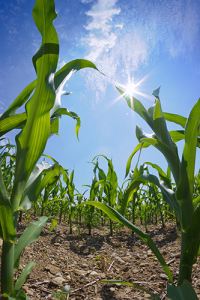FSSC 22000 is a food safety certification scheme that has been developed to certify food safety systems of organizations that process or manufacture animal products, perishable plant products, products with a long shelf life, and other food ingredients such as additives, vitamins and organic crops and materials for food packaging.

The FSSC 22000 standard was developed by the Foundation for Food Safety Systems Certification (FSSC) as a response to the need of the international food sector to have an independent ISO-based food safety scheme for third party auditing and certification for their Food Safety Management System.
FSSC 22000 is designed to promote international harmonization and transparency in food safety standards. It contains a comprehensive certification program for food safety systems that incorporates the standards ISO 22000, ISO 22003, and technical specifications for sector prerequisite programs (PRPs), like ISO 22002-1 and PAS 223. The system specifies the detailed requirements for:
- The food safety system of the food organizations to be certified,
- The certification system of the certification bodies (CBs),
- The system of accreditation by the accreditation bodies (ABs).
FSSC 22000 applies to any organization, regardless of size and geographic location, which produce food within the following categories:
- Perishable products of animal origin (meat from cattle, swine, sheep, poultry, eggs, dairy and products from the sea and fishing), excluding slaughterhouses and previous stages.
- Perishable plant products (fruits and fresh and canned vegetables, canned vegetable products).
- Products with long life exposed to room temperature (canned, cookies, snacks, oil, mineral water, beverages, pasta, flour, sugar, salt).
- Biochemical products for food production (vitamins, additives and biocultures), excluding reactions catalysts and other technical and technological aids.

The FSSC 22000 it’s recognized by the Global Food Safety Initiative (GFSI) and it’s accredited under the standard ISO guide 17021. As it is based on an ISO standard, it has worldwide credibility, provides a common language improving communication across the supply chain, and provides sufficient flexibility for specific customer requirements to be taken into account. Other benefits of FSSC 22000 are:
- Certification enables manufacturers to focus their Food Safety efforts on scientific and technical advances, and their audit resources on improvement rather than compliance.
- It provides a systematic management protocol for PRPs, with control focused on what is really necessary.
- It provides confidence to other stakeholders that an organization has the ability to identify and control food safety hazards.
- Certification enables manufacturers to focus their Food Safety efforts on scientific and technical advances, and their audit resources on improvement rather than compliance.
- FSSC 22000 is owned by a non-profit foundation.
- FSSC is managed by a Board of Stakeholders representing all relevant international stakeholders with an independent chair.
As mentioned above, FSSC 22000 uses the existing standards ISO 22000, ISO 22003 and technical specifications for sector PRPs. Those organizations that are using these standards as a guide for their food safety system can easily meet the requirements for this certification scheme.
ISO Terms Explained

To the novice quality manager, ISO jargon can be extremely overwhelming. What is an NCR? What do you mean by OFI? Are we certified or accredited? But before you go and pull out your hair, let’s take a moment to go over some of the most frequently used terms and their definitions with regards to ISO and Management System Certification.

